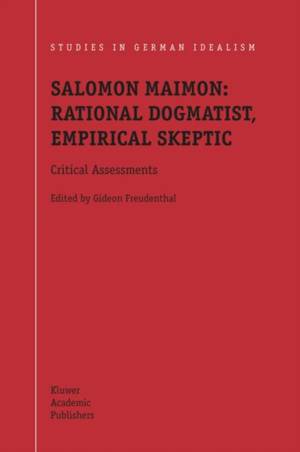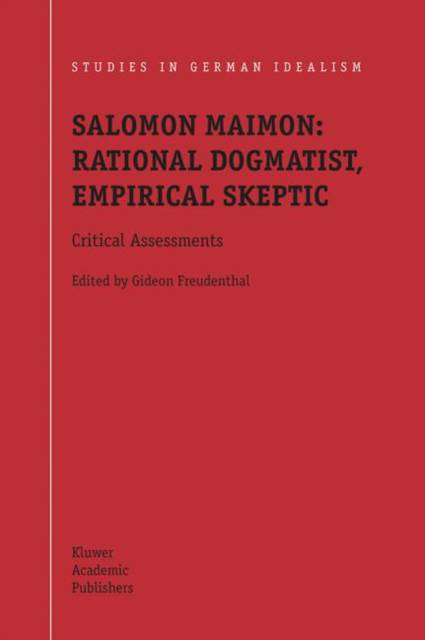
Door een staking bij bpost kan je online bestelling op dit moment iets langer onderweg zijn dan voorzien. Dringend iets nodig? Onze winkels ontvangen jou met open armen!
- Afhalen na 1 uur in een winkel met voorraad
- Gratis thuislevering in België vanaf € 30
- Ruim aanbod met 7 miljoen producten
Door een staking bij bpost kan je online bestelling op dit moment iets langer onderweg zijn dan voorzien. Dringend iets nodig? Onze winkels ontvangen jou met open armen!
- Afhalen na 1 uur in een winkel met voorraad
- Gratis thuislevering in België vanaf € 30
- Ruim aanbod met 7 miljoen producten
Zoeken
Salomon Maimon: Rational Dogmatist, Empirical Skeptic
Critical Assessments
€ 209,95
+ 419 punten
Omschrijving
Salomon Maimon (1753-1800), one of the most fascinating characters of eighteenth-century intellectual history, came from a traditional orthodox Jewish community in Eastern Europe to Berlin to seek Enlightenment. Maimon remained an outsider: an 'Ostjude' among the enlightened Jews in Berlin, a freethinker among observant Jews and a Jew among the non-Jews. His autobiography became a classic of autobiographical literature of the Enlightenment. His 'inter-cultural' experience is reflected in his philosophy. Indebted to the Maimonidean as well as to the modern European (notably Kantian) philosophical tradition, he attempted a synthesis of normally exclusive orientations: 'Rational Dogmatism' and 'Empirical Skepticism'. Maimon's importance in the development from Kant to German Idealism has been acknowledged, but the interpretation of his own philosophical position suffered much from this narrow perspective.
The essays of leading scholars collected in this volume focus on his synthesis of 'Rational Dogmatism' and 'Empirical Skepticism'.
The essays of leading scholars collected in this volume focus on his synthesis of 'Rational Dogmatism' and 'Empirical Skepticism'.
Specificaties
Betrokkenen
- Uitgeverij:
Inhoud
- Aantal bladzijden:
- 304
- Taal:
- Engels
- Reeks:
- Reeksnummer:
- nr. 2
Eigenschappen
- Productcode (EAN):
- 9781402014734
- Verschijningsdatum:
- 30/09/2003
- Uitvoering:
- Hardcover
- Formaat:
- Genaaid
- Afmetingen:
- 179 mm x 233 mm
- Gewicht:
- 625 g

Alleen bij Standaard Boekhandel
+ 419 punten op je klantenkaart van Standaard Boekhandel
Beoordelingen
We publiceren alleen reviews die voldoen aan de voorwaarden voor reviews. Bekijk onze voorwaarden voor reviews.










